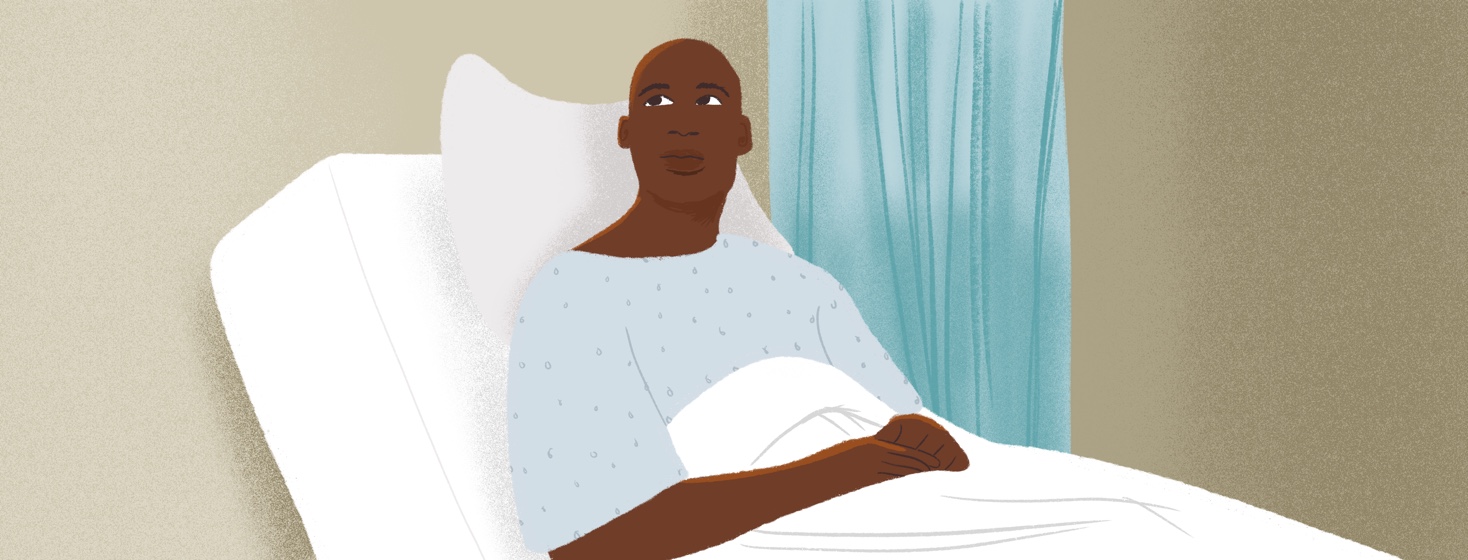Conversations with a Chaplain: A Chaplain’s Spiritual Guidance
Rev. Isaac Dusenbury is a chaplain at Duke University Hospital. He completed his chaplain residency at Duke University Hospital’s Surgical and Intensive Care Unit and graduated from the Divinity School of Duke University. Here he shares his experiences and learnings as a chaplain.
What questions do people ask you to help them answer?
Spiritual conversations are very dynamic and rarely look the same way twice. Each day as a chaplain presents new challenges and occurrences. For all the preparatory work I have done, I can never anticipate what a patient encounter will be like. In one room someone might ask me, “How do I forgive the priest who molested me?” and twenty minutes later I go into the room next door and am asked, “Will I see my dog in heaven?” Moreover, it is part of our training to not see ourselves as sage-like beings who have all the answers to life’s mysteries.
That being said, I suppose it’s common for people to ask questions about death -- what it is, what it means, what happens next, etc. In these instances, it’s important for me to understand the patient’s cultural background, social context, and possible religious affiliation(s). How I talk about death with a twelve-year-old Muslim looks very different than how I talk about death with an eighty-year-old Baptist. This is why cultural competence and cultural humility are some of the important virtues that chaplains cultivate in themselves. Rather than telling a patient what I think or feel about something, it is important for me to put the ball back in their court. If a patient asks, "What happens after I die?” an appropriate response from me would be, “I don’t know. This is a question that I too am still wrestling with. How have you experienced the loss of loved ones in the past? What does your faith tradition say about death?”
What’s your approach to helping people answer the “why” questions?
I like to think of chaplains as professional “meaning-makers;” we help people make their own meaning and come to their own conclusions within their own culture and tradition. Rather than being prescriptive with our answers, quoting scripture, or shoving theology down their throats, chaplains try to help their patients get to the emotional core of why they’re asking what they’re asking. I stay clear of religious clichés and platitudes. Responses like “everything happens for a reason” or “God works in mysterious ways” are unhelpful and insincere. More often than not, I find myself responding with “I don’t know” and I’m finally in a place where that feels okay and authentic. But while I might not be able to answer those difficult why questions, what I can do is validate those questions and the emotions behind those questions. I might not be able to say with certainty why someone’s mother died of cancer at age forty or why a baby was born with a heart defect, but what I can say to someone is, “I see that you are hurting. I see that you are scared. This really sucks, and I’m sorry that you have to go through this. How I can support you in this moment?” More important than answering those why questions is facilitating a safe place where they can be asked without judgment or negative consequences. That is the role of the chaplain: to acknowledge the sacred, to treat people with dignity, and to hold space for suffering and uncertainty. And more often than not, people won’t remember exactly what a chaplain said, but they will remember that a chaplain was there—a chaplain showed up -- and they’ll remember how that made them feel.
What advice would you give to someone facing a challenging chronic illness?
It is important to note that chaplains do not give advice. We offer options that are appropriate to an individual patient and/or family given the situation. We offer meaningful dialogue, prompt thoughtful reflection, and invite people to explore and express their feelings in healthy ways. As a chaplain, I see myself as a wounded healer. I am not this well-put-together person extending an olive branch to someone in a hole. I have my own baggage. Part of the work I do as a chaplain is to come to know those painful truths about myself -- to have some awareness of how I show up in the world and who I am bringing into the room when I encounter a patient. How can I sit beside someone else in their darkness if I have not sat in my own darkness? The role of the chaplain is not to extract or save someone from the darkness, but rather to have the courage to face it with them. Henri Nouwen, one of the great theologians of the twentieth century, once said: “Who can listen to a story of loneliness and despair without taking the risk of experiencing similar pains in his own heart and even losing his precious peace of mind? In short: who can take away suffering without entering it?”1 So if I had to say something to someone suffering from a chronic disease, I would invite them to identify a person in their life who’d be willing to simply sit with them in their suffering in a way that felt meaningful for them.
Read Conversations with a Chaplain Part I (A Chaplain’s Role in Supportive Care) and Part II (A Chaplain’s Day-to-Day).

Join the conversation